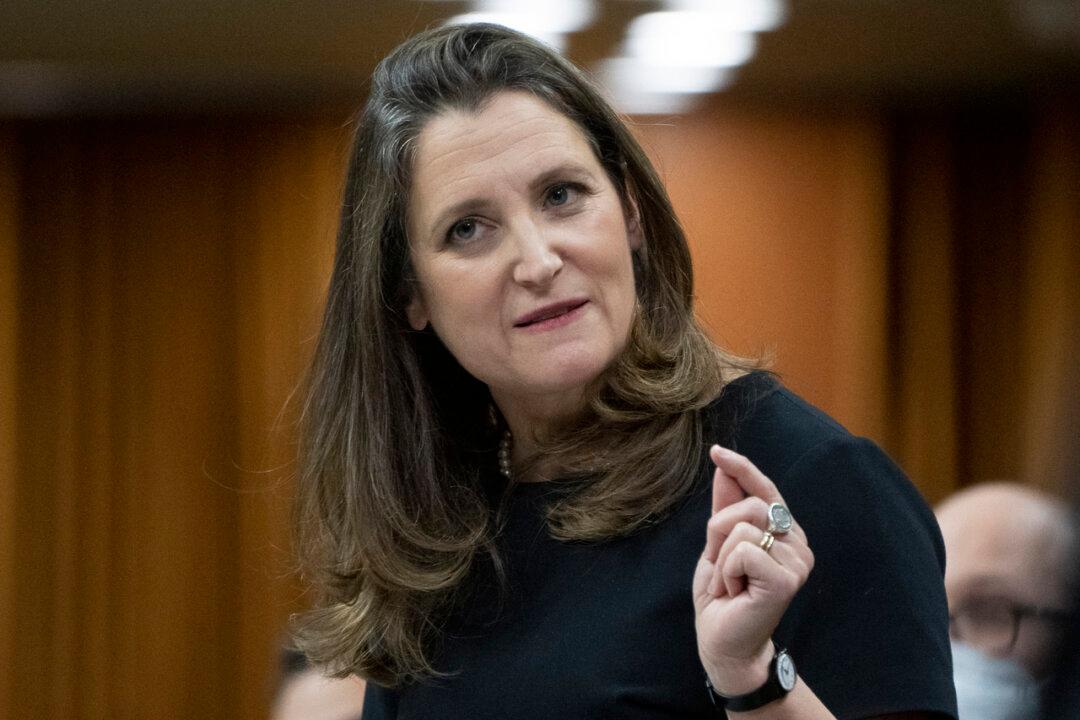As Canada ramps up sanctions against Russia in recent days in response to its invasion of Ukraine, Deputy Prime Minister Chrystia Freeland acknowledged on March 1 that Canadians could feel some repercussions from the measures.
“At the end of the day, if we are truly determined to stand with Ukraine, if the stakes in this fight are as high as I believe them to be, we have to be honest with ourselves, I have to be honest with Canadians, that there could be some collateral damage in Canada,” she said during a press conference in Ottawa.





